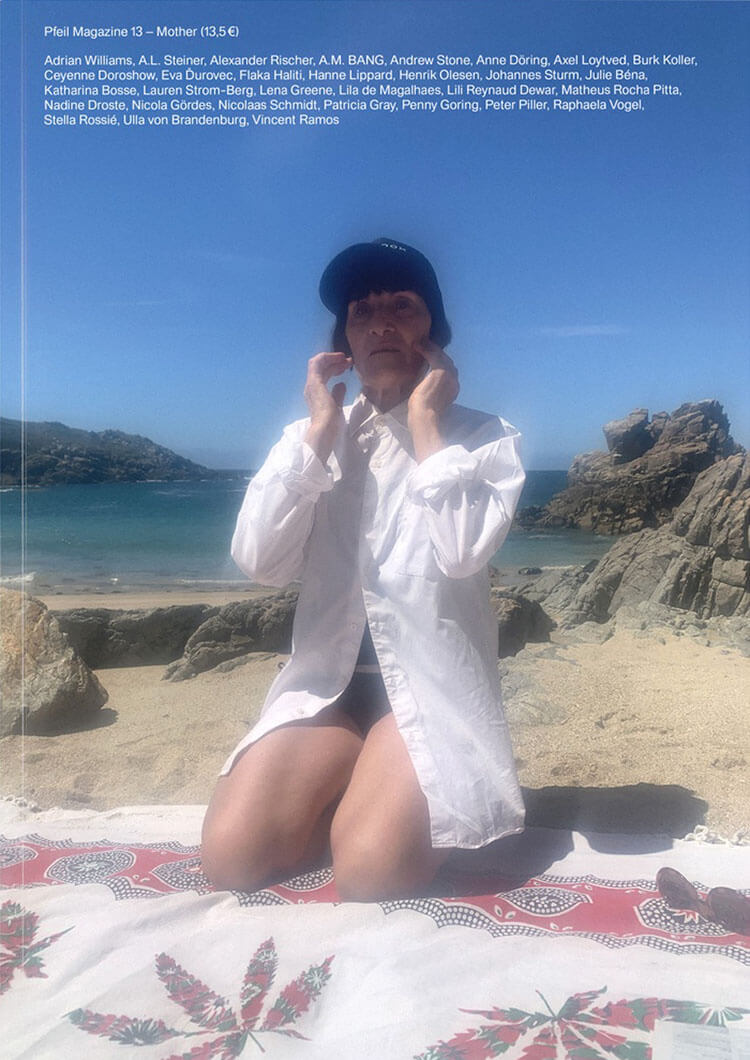A.L. Steiner
A.L. Steiner

Textdemic: A Retrospective on Jenny Holzer’s Laments
Textdemic | A Retrospective on Jenny Holzer’s Laments” Ed. by A.L. Steiner and GenderFail, a publication based on A.L. Steiner + Friends on Jenny Holzer at Dia Chelsea. This book is based on the Artists on Artists Lecture Series when the Dia Art Foundation invited Steiner to curate a public program based on a work of the artist's choice.
Steiner chose Jenny Holzer’s Laments and invited Morgan Bassichis, Riel Bellow, Gregg Bordowitz, Alexander Chee, Malik Gaines, Guadalupe Maravilla + Alexa Mishell Guillen, Lucas Michael, Eileen Myles and Pamela Sneed to present in Dia’s first in-person program after the Covid-19 pandemic began in 2021. This publication features records of the poems, lectures, and performances during this memorial program. The book's design plays homage to the 1990 Laments publication by the Dia Art Foundation.
For this publication, Steiner and GenderFail invited Matilde Guidelli-Guidi, Associate Curator at Dia Art Foundation and the organizer of the Artists on Artists Lecture Series, to write an afterword for the book. In this, she states: "Dispensing altogether with the monographic formula that characterizes the institution, for her Lecture A.L. Steiner convened a group of artists, writers, and activists to join her in responding to Jenny Holzer’s 1989 text-based installation, Laments. Holzer identified the thirteen texts that comprise Laments as 'voices of the dead,' a visual choir in response to the raging HIV/AIDS epidemic and government inaction. Over the protracted COVID-19 lockdown, Steiner developed the idea to organize an evening for the voices of the living to lament today's crises.”
And more

Pfeil Magazine #13 – Mother
The notion of a mother seems simple enough. But just one shy cut beneath the surface lies a multitude of facets, problems, questions, contradictions and wonders all connected to the idea of maternity. Biologically speaking, every person has a mother; perhaps it is the one fact we all have in common. Nevertheless this issue, dedicated to Mother, raises more questions than it is able to answer. Precisely because everyone appears to understand what a mother is, many crucial aspects of the topic are never questioned and are instead taken as a given. Is a mother defined by just having a child, or is it a child that defines the mother? Can we look at the mother without assuming womanhood? Can we untie the gendered attributes bound to the role of a mother? And what exactly are the notions of gender and sex that are connected to the common idea of motherhood? Where do they stem from? What kind of social, biological and economic pressure do mothers and potential mothers face?
In this issue, we explore alternative family structures and how responsibilities of parenting might be shared; prevailing working conditions for mothers in the arts; difficulties, challenges and prejudices mothers face in their professional lives, and what an ideal work environment might look like. Simultaneously, this issue deals with disappointments and unfulfilled expectations in the mother-child relationship, and again at that relationship in the social context. We picture the past and the present in the process of envisioning what maternity could look like in the future
Contributors
Adrian Williams, A.L. Steiner, Alexander Rischer, A.M. Bang, Andrew Stone, Anne Döring, Axel Loytved, Burk Koller, Ceyenne Doroshow, Eva Ďurovec, Flaka Haliti, Hanne Lippard, Henrik Olesen, Johannes Sturm, Julie Béna, Katharina Bosse, Lauren Strom-Berg, Lena Greene, Lila de Magalhaes, Lili Reynaud Dewar, Matheus Rocha Pitta, Nadine Droste, Nicola Gördes, Nicolaas Schmidt, Patricia Gray, Penny Goring, Peter Piller, Raphaela Vogel, Stella Rossié, Ulla von Brandenburg, Vincent Ramos.